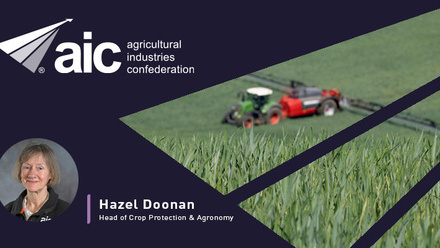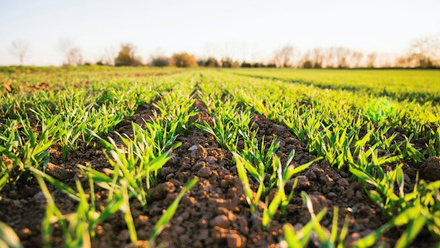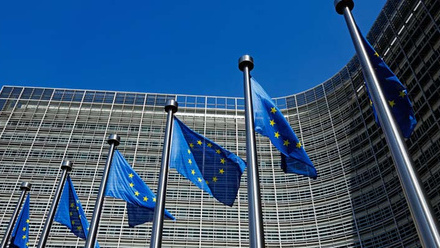GB agricultural chemicals regulatory regime delays add cost and uncertainty for farms and agri-supply businesses
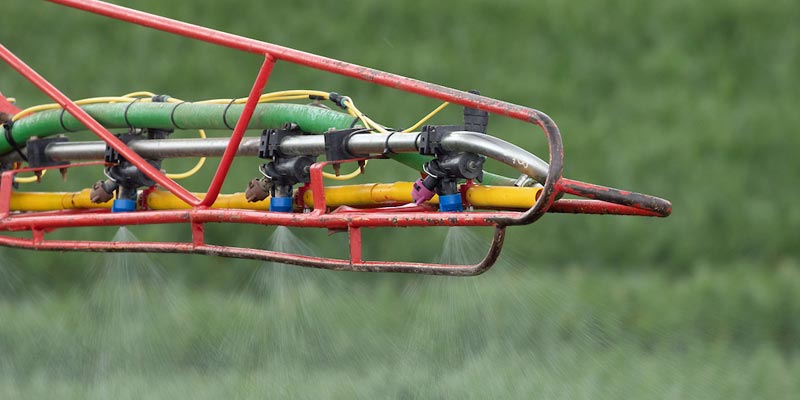
Delays to a post-EU Exit regulatory regime for agricultural chemicals in Great Britain are adding costs for agri-supply businesses and making it harder for farmers and agronomists to plan cropping rotations because of persistent uncertainty.
The Agricultural Industries Confederation (AIC) - the trade association for Crop Protection and Agronomy companies among other agricultural supply sectors - says the prolonged wait for the Government to progress and implement its pesticides regulatory regime means agri-supply businesses are facing higher costs and lack the confidence to plan and invest for the future.
Speaking on BBC Radio 4's Farming Today programme this morning (7 June), AIC's Head of Crop Protection & Agronomy Hazel Doonan explained that since EU Exit, manufacturers of plant protection products (PPPs) now pay similar fees to access the Great Britain market as they do to access the EU market where these fees in theory can be recouped across 27 member states.
Since 1 January 2021, Great Britain has operated a pesticide regulatory regime independent of the EU. However, under the terms of the Withdrawal Agreement and Northern Ireland Protocol, EU pesticide legislation continues to apply in Northern Ireland.
Listen to the interview in full on the BBC Sounds website.
"This could mean some products become uneconomic to support in GB as the market is too small. The horticulture sector is particularly vulnerable to this," says Ms Doonan.
"Also when the UK left the EU the renewal dates for active substances in pesticides were extended by up to three years and in April 2023 these dates were extended further by up to an additional five years to allow the regulator time to develop an active substance renewal programme.
"Meanwhile, the EU continues its assessments - either renewing or withdrawing active substances as they come around for renewal. This means the timing of renewal of active substances has diverged between the EU and GB since EU Exit.
"This will increase costs for manufacturers and together the increase of fees for active substance approval means we don’t know if manufacturers will support their products when the active substance renewal programme is developed."
Delays bring uncertainty
Adding to the uncertainty is the prolonged delay in the publication of the National Action Plan for the Sustainable Use of Pesticides, which aims to increase the uptake of Integrated Pest Management (IPM) and sustainable crop protection.
AIC understands that the development of the GB pesticide regime will go hand in hand with the National Action Plan - a consultation on the draft plan closed in February 2021 and publication was expected in 2022.
However, the Government has repeatedly delayed its publication, most recently due to the General Election called for 4 July 2024.
Read a recent blog from Hazel Doonan on what AIC wants to see from the National Action Plan.
"It’s now likely that publication of the plan will be delayed further, especially if a new Government chooses to review the plan, so the wait continues," says Ms Doonan.
"Currently the industry isn’t clear how the active substance renewal programme and other aspects of the GB pesticide regime will operate in terms of processes and timings.
"The delay means continued unpredictability around pesticide availability and cost. Planning crop rotations and deciding how weeds, pests and diseases can be controlled to ensure crops meet end-market requirements and produce a profitable yield is increasingly difficult for farmers and agronomists.
"So AIC is keen that the pesticide regime moves forward quickly to help the industry plan for the future."
ENDS
About AIC
As the UK agricultural supply industry's leading trade association, the Agricultural Industries Confederation (AIC) represents businesses in key sectors within the supply chains that feed the nation.
Its Member businesses supply UK farmers and growers with the animal feed, fertiliser, seed, crop protection products, trusted advice and quality services that are essential to producing food, as well as trading crops and commodities across the globe.
Formed in October 2003 by a merger of three trade associations, today AIC has over 230 Members in the agri-supply trade and represents £17.8 billion* turnover at farmgate.
AIC works on behalf of its Members by lobbying policymakers and stakeholders, delivering information, providing trade assurance schemes, and offering technical support.
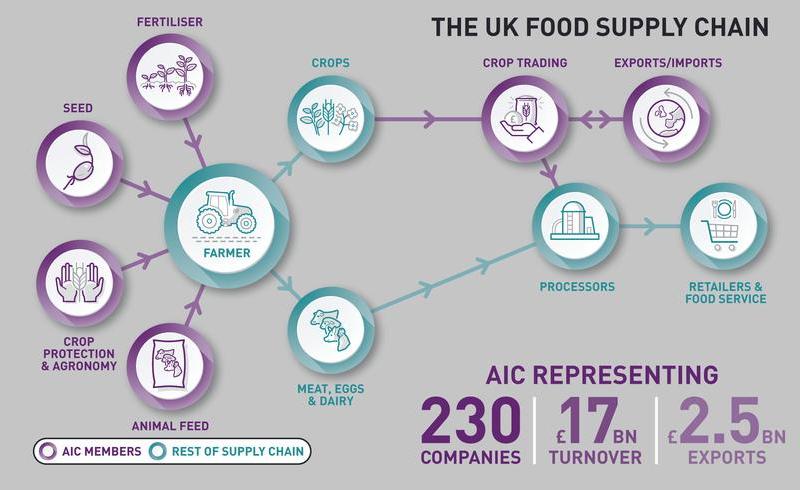
AIC Services manages a range of services, including Trade Assurance Schemes and professional registers recognised by the UK Government as essential means to underpin feed and food safety alongside fertiliser security.
These schemes and professional registers include:
- Trade Assurance Scheme for Combinable Crops (TASCC)
- Feed Materials Assurance Scheme (FEMAS)
- Universal Feed Assurance Scheme (UFAS)
- European Seed Treatment Assurance (ESTA)
- Fertiliser Industry Assurance Scheme (FIAS)
- Feed Adviser Register (FAR)
- Renewable Energy Directive (RED)
- Forage Assurance Scheme (FAA)
- AIC Services Palm Oil Credit Scheme (APOCS)
*According to a 2023 survey of AIC Members.
Press Contact
Oli Hill, Head of Communications, AIC
+44 (0)1733 385230
[email protected]


